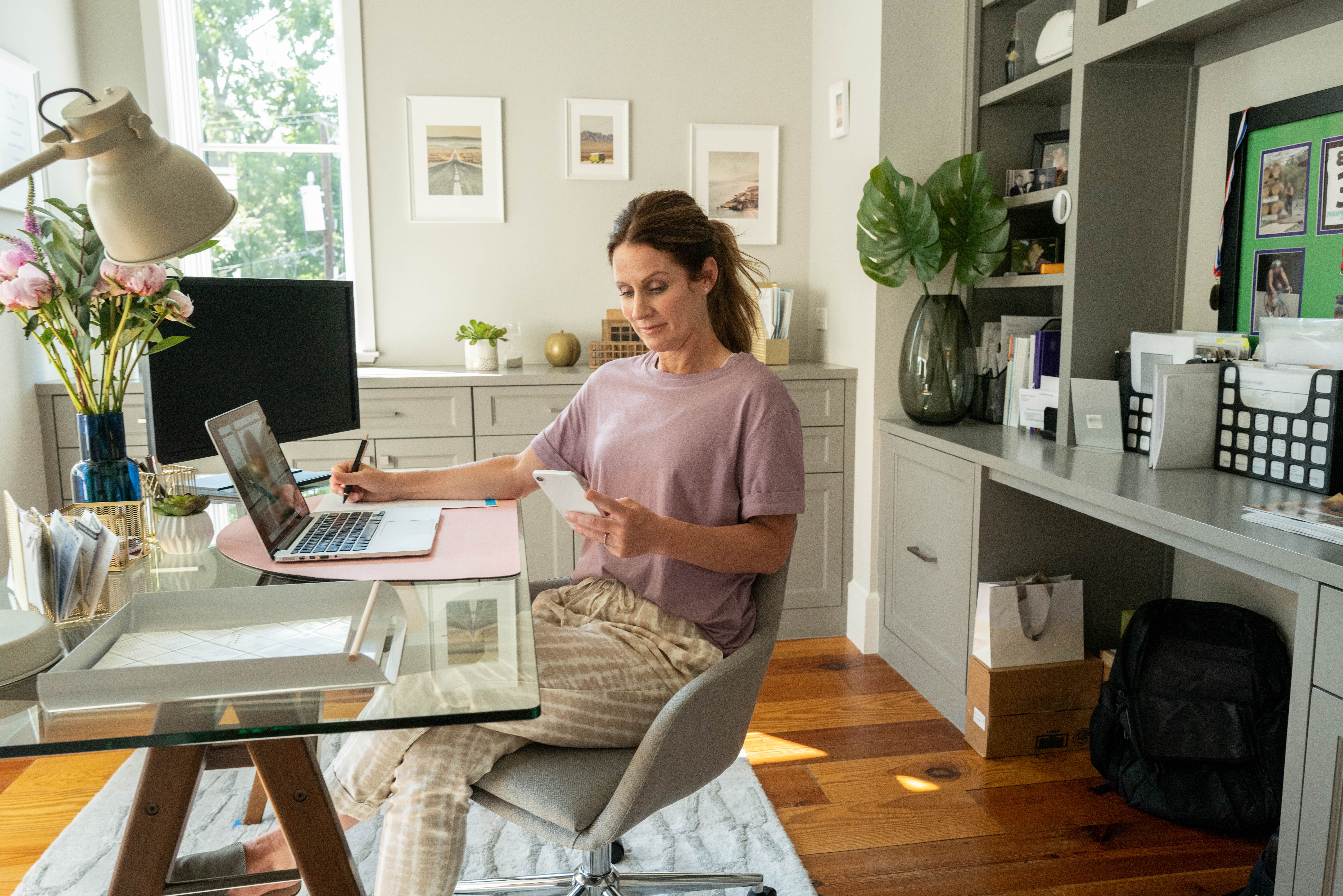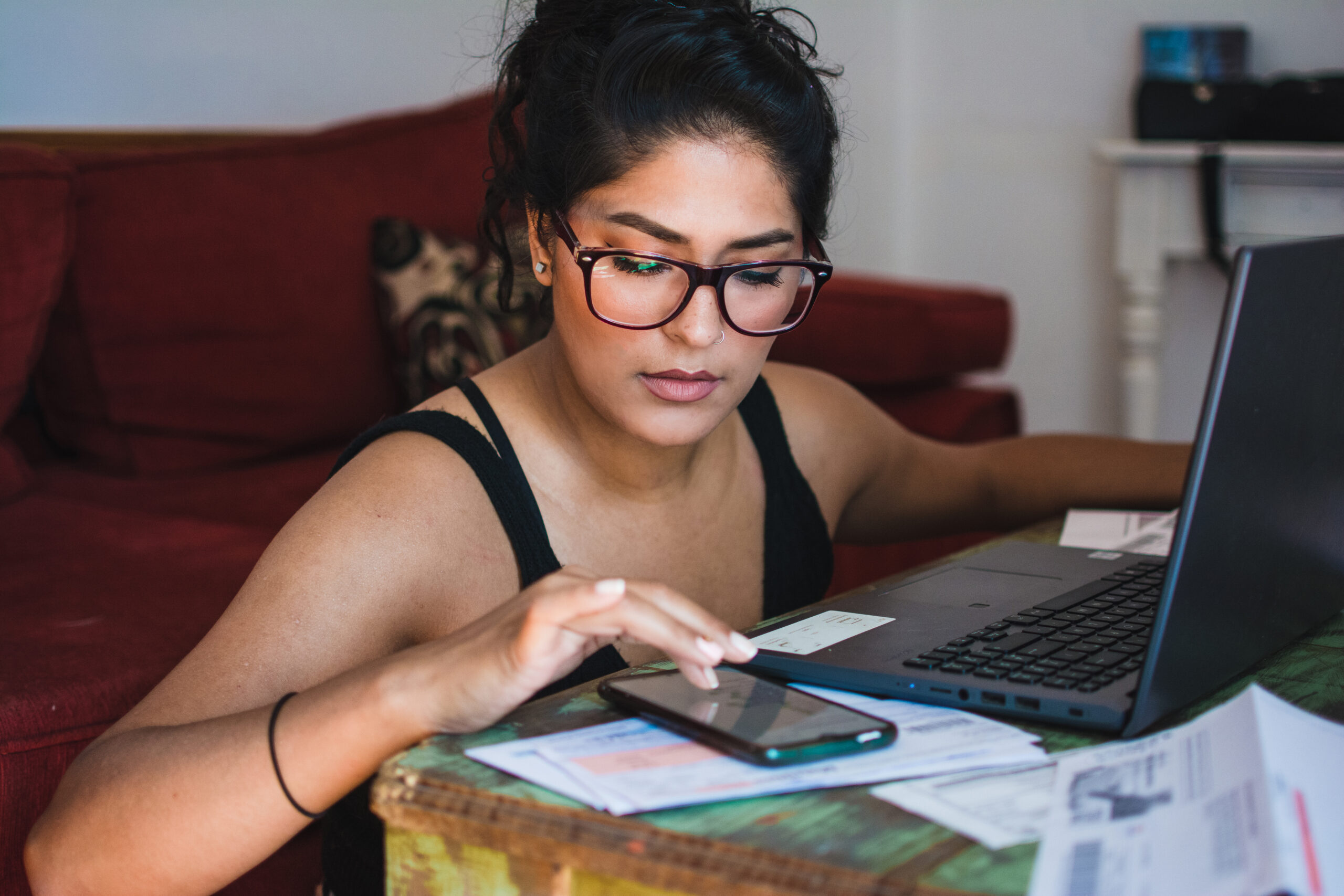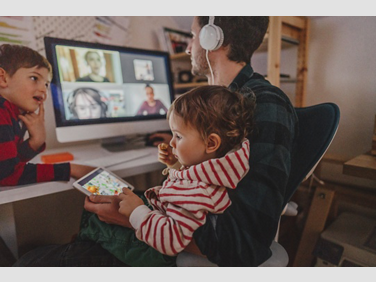What is a VPN?
VPN stands for “virtual private network.” It gives you more privacy and anonymity by creating a private network that hides your IP (or internet protocol) address using highly secure and encrypted connections. When this information is hidden, it means that you’re not as easily tracked or identified online. If you’re concerned about who can see your internet activities or you want to protect your personal identification online, a VPN can be a great privacy tool in your arsenal.
Do I want a VPN?
Probably. If you ever use your computer or phone to surf the internet in any kind of public setting where there’s shared Wi-Fi—such as an airport, or coffee shop—having a VPN is a great way to help keep your identity and information safe. Without one, companies, hackers, and others have easier access to your online behaviors to use to their advantage, whether that means feeding you targeted advertising or stealing your identity. Using a VPN helps ensure that your private information stays private, especially when you’re working on a shared network in a public space. Plus, there are other benefits to using a VPN. For example, a VPN can allow you to access regional-specific content you might not be able to get using a regular connection—and that means you may be able to access additional content from your favorite streaming platforms that might not be available in your country.
Do I really need a VPN at home?
While VPNs are most important for using the internet in public spaces, a VPN can also be helpful anywhere where you connect to the internet. After all, just because you’re surfing using your own home network doesn’t mean that hackers, companies, and other nosy people won’t snoop on your online behavior. And, if you work with sensitive information as part of your job, you may really need a VPN at home.

Is a VPN legal?
Though every country has different regulations regarding internet use and privacy tools, in the United States, it’s legal to use a VPN. Of course, if you use your VPN to commit any type of crimes, you’ll still be held accountable and prosecuted for breaking the law, VPN or not. If you’re traveling and wondering whether or not you can use your VPN, that will depend on the country you’re traveling to. Make sure you do your research ahead of time to determine whether or not it’s legal to use your VPN in the country you’re visiting.
Is a VPN safe to use?
A VPN is definitely safe to use, but you’ll want to make sure you do your research to make sure you find the right VPN for your needs. For example, a free VPN has the benefit of being cheap, but not every free VPN option comes from a reputable company.
There are numerous paid options you can choose from to fit your budget, and they all have different benefits associated with them—some are faster than others, while others can be more privacy-focused.
Should I leave my VPN on all the time?
If you want to ensure you have constant privacy protection, you should leave your VPN on all the time. It’s especially important to leave your VPN on when you’re online in a public space, because publicly shared Wi-Fi is notoriously insecure.

How do I get a VPN?
You can get a VPN starting with doing a little research to determine which VPN is right for you. Some things you’ll want to look for include what the company’s privacy protocols are like, where their servers are located, if you can use it with more than one device, and of course, how much it costs. Many companies will offer a free trial so you can try out a VPN service and see how you like it.
If you’re an AT&T Internet customer, you may want to consider AT&T Active ArmorSM internet security with enhanced features, which offers VPN at Home1 in addition to a variety of other helpful security features, such as ID Monitoring, Advanced Content Controls, personal data protection, and connected device security.
This article is AT&T sponsored content written by Carly Milne, a TechBuzz contributor. The statements in this article are her own and don’t necessarily represent the positions, strategies, or opinions of AT&T.
- May not protect against user-authorized access to home network.





